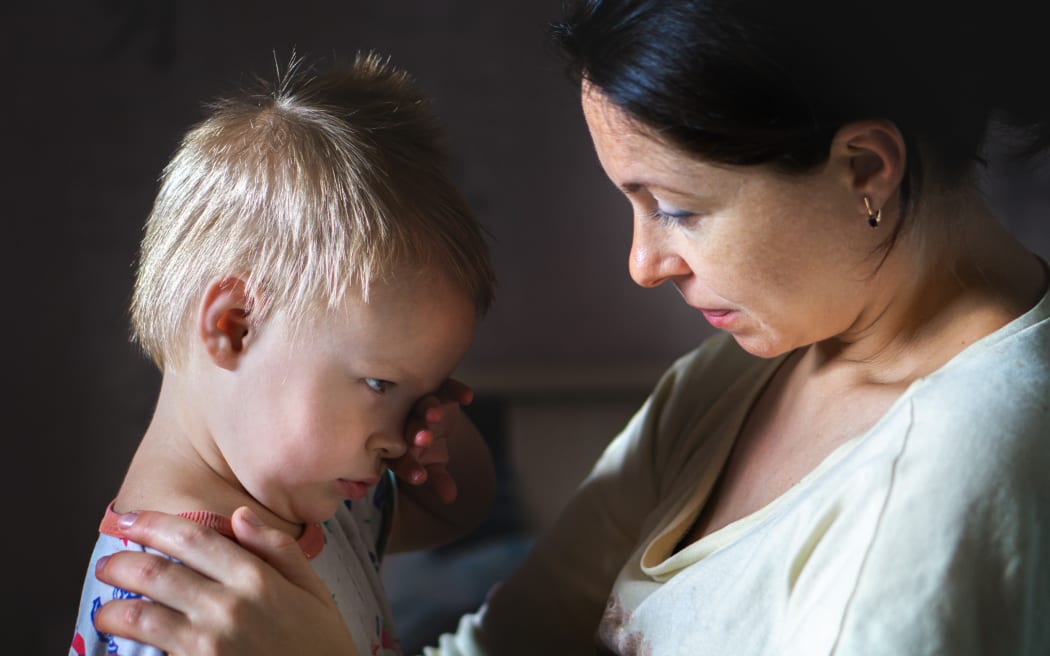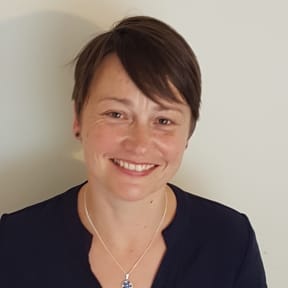
(file image) Photo: 123rf
In the wake of Cyclone Gabrielle, many parents are facing a loss of home or livelihood or, at the very least, a massive cleanup. So what do you say to children about all of this ? Katy Gosset takes a look at how to calm their fears.
Sarah* says her 10-year-old son Nate* "feels all these emotions and he feels them really big".
Since Cyclone Gabrielle struck there have been "a few more outbursts" and he recently asked her: "What's going to happen when I die?"
"He's a lot more aware of the lives lost," she said.
Sarah's family lives close to the Tukituki River near Haumoana in Hawke's Bay and made a hasty evacuation, swimming from their home as flood waters rose.
"The water was lapping at the deck to the house. It was rushing in, so we really thought that we'd lost the house."
Luckily the water stopped short, getting within 50mm of flooding the house but sheds and outbuildings have all been damaged.
For Jane's* family on the inland road between Gisborne and Wairoa, their home is undamaged but the road to Gisborne is washed out and a trip to town now means a journey over a makeshift track.
Her daughter, who has just started Year 9, cannot get to high school and Jane is worried about the impact academically and socially.
''It's scary. I'm scared especially for my high school girl. I'm not sure where we're going to go from here."
And then there is their livelihood.
"We're on a farm. Are we going to get our stock out? How are we going to do that? And I guess that stress is also probably reflected back on the kids a little bit too.''
For both families, there is stress and the challenge of knowing what to tell children and how to alleviate their fears.
Clinical psychologist Catherine Gallagher says it is important to make time to listen to children's worries. On Are We There Yet? she discusses how to help kids make sense of it all.
Tips for parents

Catherine Gallagher Photo: Supplied
- Get the basics sorted: food, shelter and making sure you are safe.
"That stuff really matters because if we are not feeling safe, then some of that higher level thinking and wondering and worrying actually doesn't count because our systems aren't settled enough to take that on board," Gallagher says.
- Look after yourself and keep calm to better help your children.
"Your kids need you to be in the best shape you can be in. Please prioritise that because your kids are looking to you to know how safe to feel."
- That includes eating well and, if possible, getting exercise and sunshine. Try to find time for some fun with kids.
"Those are things that just give your nervous system a bit of respite, a bit of a change, a bit of connected time and that can make us all feel a little bit more settled."
- Tell your kids what's going on around them.
"Sometimes obviously we want to protect them, but if we protect them too much, then their little minds are running away with them and they can fill in the gaps that we are not filling in."
- Make the information age-appropriate and do not overdo it or it can overwhelm children.
"Little snippets, you translating the news into their kind of language and things that [they] might understand is really important, but just having free reign over the news is probably not as helpful for you or for them."
- Similarly, allow time for children to discuss worries but don't let the 'what ifs' get out of control. If there are too many concerns about the future, refocus your kids on something else. "Let's actually just take a deep breath. Let's have a cuddle. Let's settle down and let's go off and throw the ball around or let's go and do something and change the tune a little bit."
- Discussing dreams and remembering events together as a family are good ways to help children fill in the gaps and make sense of what has happened.
- It is okay to tell them that you were scared and that you don't have all the answers but make it clear that you have support around you and you are following a plan, even if it is a day by day plan.
- If your own worries are stopping you from functioning, try to tag team and get help from other adults.
''There might be times when another parent feels a bit calmer, and if you need to take some time out, then that's a really good thing to do."

- Re-establish routines as best you can. Even if you are out of your home, try to maintain habits like a similar bedtime routine or the same toothpaste flavour.
"If there can be things that can be made routine as much as possible, that's really handy because our brains love to know what's happening next."
- Getting involved in the clean-up can help give children a sense of control over the situation.
''If they can look back on this experience and be reminded of when they showed some agency or were able to feel powerful and involved and brave, then those are the things that can really help them feel better about this experience.
- It is okay to overreact. Just acknowledge it, apologise to your children and move on.
"Whoa, I lost my temper there. Hey, there's a lot of stuff on board. I'm pretty full up, so I'm really sorry about that, guys, I needed to take a deep breath. Now let's try that again."
*Not their real names.
Watch Catherine Gallagher talk about how to help children after Cyclone Gabrielle.

